Lent For EveryoneSample

WEEK 4: SUNDAY
As I suggested earlier, farm animals are not as stupid as town- dwellers often imagine. They recognize individual faces — faces of other animals, faces of humans too. They know individual voices. They pick up signals and react accordingly. If it's some- one they know or trust, they will be happy; if not, they may well be afraid. In this, perhaps the most famous Psalm in the book, the poet has managed, in the first four verses, to get right inside what we might call the mind of an animal — in this case, the sheep.
Sheep are very vulnerable. By themselves, they can't find the way to good pasture and drinking water. In the Middle East, these things are hard to find, and it's the shepherd's job to know where they are. That's quite a challenge in a region where, for much of the year, there is little rain. And there are dangers all around: dark crevasses where one could get lost, or stuck, or be at the mercy of robbers, wolves or lions.
From the sheep's-eye point of view, therefore, the shepherd brings a huge sigh of relief. I know this shepherd. I trust him. I'll be all right. When I follow him closely we always end up with good grass to eat and water to drink. We'll have to go on some odd paths from time to time but they always get us to the right place. And when danger approaches — well, the shepherd will look after us. He has a big stick and he knows how to use it. We'll be all right.
Many generations of devout Jews, from long before the time of Jesus to this day, have prayed that Psalm, putting themselves into the picture. Yahweh, Israel's God, was like that with them! They could trust him for everything, even when everything went dark. And now, many generations of Christians have prayed the Psalm in the same way, in the light of the many passages where Jesus picks up the shepherd-promise and applies it to himself. In fact, the gospel story is not unlike the picture of the shepherd and the sheep: Jesus leading his disciples around Galilee, teaching them, healing people as he goes. And as the story moves us forwards towards the valley of the shadow of death, we look on in awe and wonder as the Good Shepherd goes ahead of us into the darkness. His rod and his staff, two poles of wood, come together in a new pattern, a shape which will etch itself on the heart of the world. We look at the cross and we are comforted.
The poem then shifts, in the last two verses, away from the sheep and the shepherd. Once we come out of the dark shadow, we become human in a new way. A table is spread before us, despite the people who still mock us and try to attack us for our faith and our hope. God provides us with good things of all sorts. Instead of the sheep who are led to food and drink, we become people who, strengthened by God's food, discover that he is gently following them in the new ventures to which they are called. 'Goodness and mercy', or in another translation 'kindness and faithful love', will follow us. That is to say, God himself will follow us — and God, as we constantly need to remind ourselves, is himself over- flowing with goodness, kindness, mercy and faithful love.
Again the poem shifts. For the original poet, 'dwelling in the Lord's house for ever' would mean, literally, making one's home in the Temple in Jerusalem. But already within ancient Judaism 'the Lord's house' had come to mean, by extension, the places where his people met to pray, and the holy book they studied wherever they went. The first Christians believed that the Temple itself had been transformed from being made of stone, timber, bricks and mortar to being made of flesh, blood and bones: Jesus' flesh and blood, where the living God truly and utterly dwelt, and then, astonishingly, the human bodies of his followers, as God's Spirit came to live within them. We make this poem our own, then, confident that Jesus, the good shepherd, will do all that the first four verses claim. Confident, too, that his dwelling in us and ours in him, rooted as they are in his kindness and mercy, will never come to an end.
TODAY
Lord, we thank you for your faithful love and mercy. Look after us each moment, we pray, and lead us where we need to go.
As I suggested earlier, farm animals are not as stupid as town- dwellers often imagine. They recognize individual faces — faces of other animals, faces of humans too. They know individual voices. They pick up signals and react accordingly. If it's some- one they know or trust, they will be happy; if not, they may well be afraid. In this, perhaps the most famous Psalm in the book, the poet has managed, in the first four verses, to get right inside what we might call the mind of an animal — in this case, the sheep.
Sheep are very vulnerable. By themselves, they can't find the way to good pasture and drinking water. In the Middle East, these things are hard to find, and it's the shepherd's job to know where they are. That's quite a challenge in a region where, for much of the year, there is little rain. And there are dangers all around: dark crevasses where one could get lost, or stuck, or be at the mercy of robbers, wolves or lions.
From the sheep's-eye point of view, therefore, the shepherd brings a huge sigh of relief. I know this shepherd. I trust him. I'll be all right. When I follow him closely we always end up with good grass to eat and water to drink. We'll have to go on some odd paths from time to time but they always get us to the right place. And when danger approaches — well, the shepherd will look after us. He has a big stick and he knows how to use it. We'll be all right.
Many generations of devout Jews, from long before the time of Jesus to this day, have prayed that Psalm, putting themselves into the picture. Yahweh, Israel's God, was like that with them! They could trust him for everything, even when everything went dark. And now, many generations of Christians have prayed the Psalm in the same way, in the light of the many passages where Jesus picks up the shepherd-promise and applies it to himself. In fact, the gospel story is not unlike the picture of the shepherd and the sheep: Jesus leading his disciples around Galilee, teaching them, healing people as he goes. And as the story moves us forwards towards the valley of the shadow of death, we look on in awe and wonder as the Good Shepherd goes ahead of us into the darkness. His rod and his staff, two poles of wood, come together in a new pattern, a shape which will etch itself on the heart of the world. We look at the cross and we are comforted.
The poem then shifts, in the last two verses, away from the sheep and the shepherd. Once we come out of the dark shadow, we become human in a new way. A table is spread before us, despite the people who still mock us and try to attack us for our faith and our hope. God provides us with good things of all sorts. Instead of the sheep who are led to food and drink, we become people who, strengthened by God's food, discover that he is gently following them in the new ventures to which they are called. 'Goodness and mercy', or in another translation 'kindness and faithful love', will follow us. That is to say, God himself will follow us — and God, as we constantly need to remind ourselves, is himself over- flowing with goodness, kindness, mercy and faithful love.
Again the poem shifts. For the original poet, 'dwelling in the Lord's house for ever' would mean, literally, making one's home in the Temple in Jerusalem. But already within ancient Judaism 'the Lord's house' had come to mean, by extension, the places where his people met to pray, and the holy book they studied wherever they went. The first Christians believed that the Temple itself had been transformed from being made of stone, timber, bricks and mortar to being made of flesh, blood and bones: Jesus' flesh and blood, where the living God truly and utterly dwelt, and then, astonishingly, the human bodies of his followers, as God's Spirit came to live within them. We make this poem our own, then, confident that Jesus, the good shepherd, will do all that the first four verses claim. Confident, too, that his dwelling in us and ours in him, rooted as they are in his kindness and mercy, will never come to an end.
TODAY
Lord, we thank you for your faithful love and mercy. Look after us each moment, we pray, and lead us where we need to go.
Scripture
About this Plan

Lent for Everyone is a devotional created and written by N.T. (Tom) Wright. For each day of Lent, there is a reading chosen from the Gospel of Matthew, plus a reflection by Wright. These readings have grown out of a project encouraging Lent reading in Northern England. This is the second in a three-volume series based on the Revised Common Lectionary of the Church of England.
More
We would like to thank SPCK Publishing for providing Lent for Everyone by Tom Wright. For more information, please visit their site: http://www.spckpublishing.co.uk/shop/lent-for-everyone-matthew/
Related plans

Journeying With Jesus - 40 Days Lent Devotional
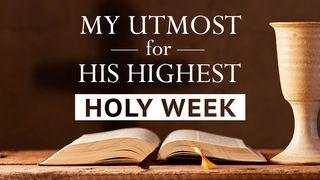
My Utmost for His Highest - Holy Week
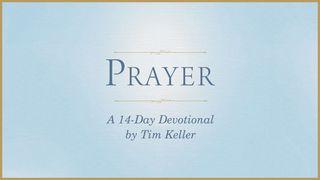
Prayer: A 14-Day Devotional by Tim Keller
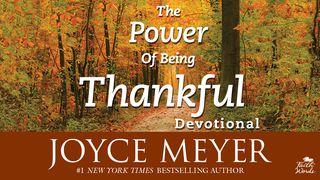
The Power Of Being Thankful
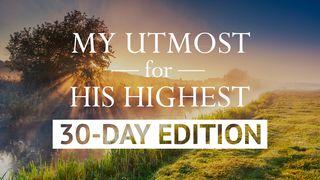
My Utmost For His Highest

The Greatest Gift

Joyce Meyer: Promises for Your Everyday Life - a Daily Devotional
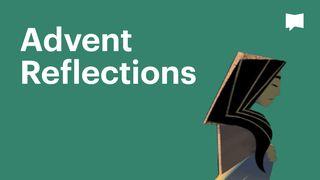
BibleProject | Advent Reflections

Advent: The Journey to Christmas
